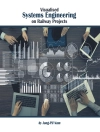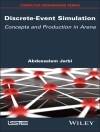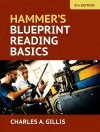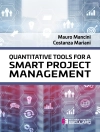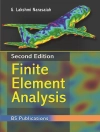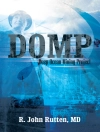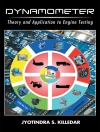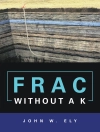This book features selected papers from the International Conference on Communication and Applied Technologies (ICOMTA 2023), jointly organized by the Colombian Association of Journalism and Science Communication (Colombia), and the Benemerita Universidad Autonoma de Puebla (Mexico); and as collaborators at the Universidad de Málaga (Spain), Universidade de Vigo (Spain), Universidade de Santiago de Compostela-Equipo de Investigaciones Políticas (Spain), Red Internacional de Gestión de la Comunicación (XESCOM), the International Media Management Academic Association (IMMAA), Red de Investigadores en Comunicación de Ecuador (RICE), and Observatorio Interuniversitario de Medios Ecuatorianos (OIME), during 6 – 8 September 2023. It covers recent advances in the field of digital communication and processes, digital social media, software, big data, data mining and intelligent systems.
Mục lục
Design of an energy management system for microgrids applied to an isolated system incorporating solar thermal energies.- A Digital REBA System Based on Kinect and its Benefits for Ergonomic Assessment.- Social Network Addiction: A Structural Equation Modelling.- The use of neural networks for the prediction of type II diabetes: a comparison of recent advances and perspectives.- Sequential prompts and AI to illustrate a Mexican legend using syntography.- Teaching skills mediated by perceived utility and ease of use in student motivation and collaboration.- Electronic Immunization Record for rural communities in México.- Automation of Brand Management: Possibilities, Challenges and Limitations.- Truth and newsworthiness in the era of Artificial Intelligence.- Emerging technological ecosystem for public administration: business intelligence, artificial intelligence and data mining.- Technology and Video Surveillance in educational spaces: A path towards citizen security.- Unraveling the Truth: Investigating the Spread of Fake News on Facebook during the COVID-19 Crisis.- Young people and social representations on artificial intelligence in Peru and Colombia.- An analysis of digital communication in Spanish agricultural cooperatives.- Use of social networks as a factor for the development of digital citizenship in Puebla.- “Do It Yourself” Narrative as a New Type of Tourism Influencers 2.0 on You Tube.- Big Data Analysis of Google Searches for Prediction of Election Results: A Longitudinal Study.- Communication 2.0 in Iberoamerican cultural websites .- Cross-cultural validation of a questionnaire on digital teaching competence in Mexico.- Digital transformation in Spain during the pandemic: Access, interaction and change in habits.- Scholarships assignments: an important challenge of resources allocation. Case study: Completion Prediction System for Mexican Institution.- Social Network Sites: Challenge for a learning management model. Case study in Ecuador.- Cybersecurity and journalism: Digital violence is another form of violence for female journalists in Ecuador.- Management of employer branding and communication 2.0.- Digital citizenship through online media. Manifestations and perceptions in Ecuador.
Giới thiệu về tác giả
Daniel Barredo Ibáñez is an Emergia Fellow at the Department of Journalism (University of Malaga, Spain), thanks to the Department of University, Research, and Innovation of the Andalusian Regional Government. He is an Invited Researcher at the Fudan Development Institute of the Fudan University (China). His interdisciplinary work explores three lines of research: studies on public opinion and the media, studies on violence in Latin America, and international studies in a comparative key. He has a doctorate in Journalism from the University of Malaga, a master’s degree and an expert in Communication and a degree in Hispanic Philology and Audiovisual Communication from the University of Granada. He has an H index of 21.
Laura M. Castro is a professor at the University of A Coruña (Spain), where she has been lecturing for fifteen years. She coordinates several undergraduate courses on Software Architecture and Software Testing, and between 2017 and 2022 she wasthe studies coordinator for the Degree in Software Engineering. Since January 2022, she is the head of the CICAS Chair, created to boost Open Science through Open Software. Her research interests focus mainly on the automatic validation of distributed systems. She has supervised three Ph D thesis and acted as PI in several European projects. She is also actively involved in numerous dissemination activities, in particular for the visibility of women in STEM, as a member of ACM-W Europe.
Araceli Espinosa Márquez is a research professor at the Institute of Government Sciences and Strategic Development, where she is attached to the Center for Strategic Development Studies at the three Benemérita Universidad Autónoma de Puebla (Mexico). She is currently developing these lines of research: ‘ICTS and Electronic Surveillance with a Human Rights approach’; ‘Public Opinion, Political Marketing and Electoral Integrity in Mexico’ and ‘Migration, Social Vulnerability, Sustainable Development and Public Policy’. She has been a leader and collaborator in different research projects with public funding by the Benemérita Universidad Autónoma de Puebla and by the National Council of Science and Technology of Mexico. She is author and editor of several books and scientific and popular articles.
Iván Puentes Rivera, Ph.D. in communication, a master in research in communication, and a graduate in advertising and public relations from the University of Vigo; he is Professor at the University of Vigo, as well as Technical Secretary of XESCOM (International Network for Research in Communication Management). His main lines of research focus on political communication and electoral campaigns, public relations in this field, disinformation, and fact-checking in political debate and electoral debates on television. Along with this, he also highlights his research work in relation to public television and, in particular, about transparency in radioand television broadcasters of this type. Outside the university, he has a wealth of professional experience in the field of public management and communication.
Paulo Carlos López-López is a Ph D Assistant Professor in the Department of Political Science and Sociology at the University of Santiago de Compostela (USC). Ph.D. in Communication and Ph.D. in Political Science, journalist, and political scientist. He is a member of the International Research Network on Communication Management and the Political Research Team of the USC. He has published more than ninety scientific papers on topics such as communication, technologies, social media, and political science. He was the director of the group ‘Media, Applied Technologies, and Communication’ and the director of a postgraduate degree in Political Communication in Ecuador. He was awarded the Drago 2019 research award for his study on transparency and has work experience on electoral campaigns, organizational communication, press office, and parliament management. He has an h-Index 13.


